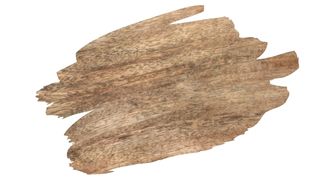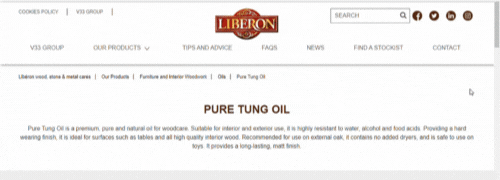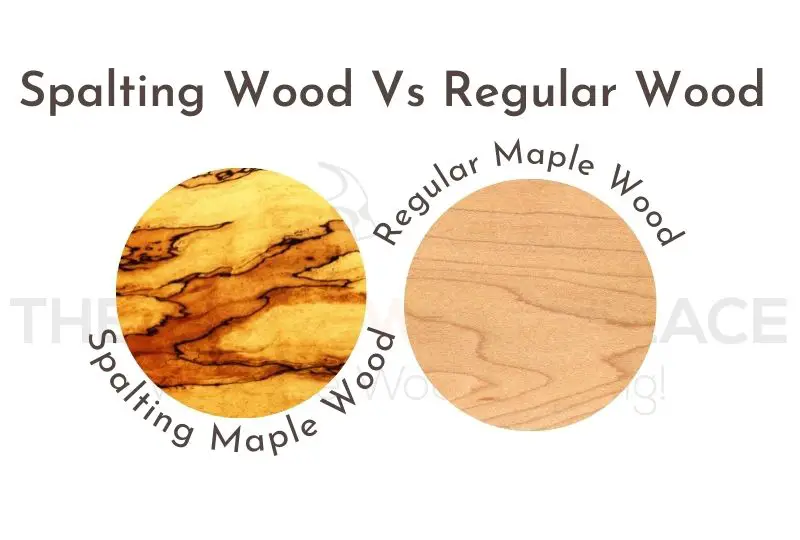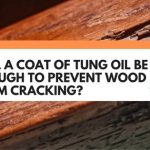As woodworkers, it’s not often you get the opportunity to work with a timber like Mango wood.
Which is surprising, because compared to its hardwood compatriots – such as Oak and Mahogany – Mango wood is relatively inexpensive.
Related Post: What You Need To Know About Alder Vs Mahogany Wood
The distinctive straight grain of this timber can take a coat of stain fairly well. But if you want to mango wood to really last, then you won’t go too far wrong by applying Tung oil to it.
Pure Tung oil looks fantastic on mango wood. It’ll really bring out the natural color of this timber. And it will soak right into the grain, giving it an oil finish that’ll seal and protect as well.
Now, Tung oil can enhance the natural good look of Mango wood grain. But is it really your best choice for an oil finish? And could that Tung oil end up discoloring Mango wood to boot? Keep reading to discover the answers to those questions and more below…

This post may contain affiliate links to products that we receive a commission for (at no additional cost to you). Learn more here.
What Oil Should You Use On Mango Wood?
You can use a range of different oils… provided they are natural.
Tung oil (naturally sourced from the seeds of the Tung tree) is a fan favourite. But you can also use Olive oil, Mineral Oil, and even Walnut oil to help treat Mango Wood.
However, a lot of natural oils are what we refer to as non-drying oils. To put it simply, they stay wet and don’t dry to the touch.
This is all well and good if you want to oil say a Mango wood-carved vase. But if you have a piece of mango wood furniture such as a table or chair, then you will need to use a drying oil.
Related Post: Rubio Monocoat vs Tung Oil: 3 Key Things To Consider
Choosing A Natural Drying Oil
There two best natural drying oils out there are Linseed Oil (sourced from the linseed-flax plant) and Tung oil.
Linseed oil is famous for its long-drying times as this oil can take weeks to properly dry and cure. However, the real problem with using Linseed oil on Mango wood is discoloration.
When applied to wooden surfaces, Linseed oil will gradually turn that surface severely yellow over time.
However, pure Tung oil has no such discoloration issues. And so it is your best choice on Mango wood.
Related Post: Walnut Oil Vs Tung Oil (They’re More Alike Than You Think)
But, Does Tung Oil Darken Wood?
No it doesn’t. Don’t be mistaken, oiling any wooden surface will always darken the wood ever so slightly. However, pure Tung oil is a honey-hued substance that won’t do much to change the color of wood.
However, this is only true of ‘Pure’ Tung oil.
You see, while there are lots of Tung oil products out there, most aren’t actually pure Tung oil. In fact, a number of these so-called Tung oil products don’t even have a drop of Tung oil in them.
These fake-Tung oil finishes, if you happen to use them, could end up darkening Mango wood when applied.
But, so long as you stick to a Pure Tung oil finish, you will be fine. For example, Liberon’s Premium Pure Tung Oil is a high quality all natural product… which is exactly what you need for Mango wood.

You can check out the latest prices for this finishing oil over on Liberon.com by clicking here.
The Thing About Pure Tung Oil Vs Polymerized Tung Oil
So, we’re all in agreement that pure Tung oil is great, right? Well, here’s the thing… if you apply pure Tung oil onto a frequently used item, it won’t hold up well.
That is because this oil finish simply isn’t durable enough to be used on heavy wear and tear furniture. In other words, if you want to apply an oil finish onto tables and chairs, then pure Tung is not ideal.
But, that doesn’t mean Tung oil is out of the question when finishing a Mango wood table. If you want to apply Tung oil to that dining room set, then you are better off using a Polymerized Tung oil.
Polymerized Tung oil is made from a blend of Tung oil, thinners and solvents. And then this blend has been put through a high heated treatment that causes it to go through a polymerization process.
To put it simply… polymerized Tung oil is basically a chemically treated Tung oil solution. And that makes this a toxic Tung oil blend.
However, this type of Tung oil mix not only dries faster than its natural counterpart, it is also much more durable than pure Tung oil too. Which makes it great for finishing off table tops.
Related Post: Tung Oil Not Drying? (3 Simple Ways To Fix It)
But, Doesn’t Mango Wood Darken With Age Anyway?
No, Mango wood doesn’t darken with age, however it can sometimes go through something called ‘spalting’.
Spalting is a process that creates uniquely mismatching discoloration all along the face of wooden boards. It’s caused by a particular type of fungi that likes to grow on decaying trees.
Related Post: A Quick Guide To Hardening Spalted Wood
This isn’t unique to mango wood. Other types of hardwood lumber, such as Maple and Birch, can end up going through this process too.

Related Post: Can You Put Tung Oil On Maple Wood (For An Effortless Finish)?
So To Sum Up…
Tung oil is a fantastic finishing option for Mango wood. A pure Tung oil finish will go a long way to keeping Mango lumber beautiful for years. Just be prepared to give that finish a touch up once a year or so.
However, if you are finishing up a Mango wood piece that may see a fair bit of wear and tear, (like say a table), then you will need a more durable Tung oil finish. In which case, apply a polymerized Tung oil solution instead.
References
The cationic polymerization of tung oil and its fatty-acid methyl ester – ScienceDirect



